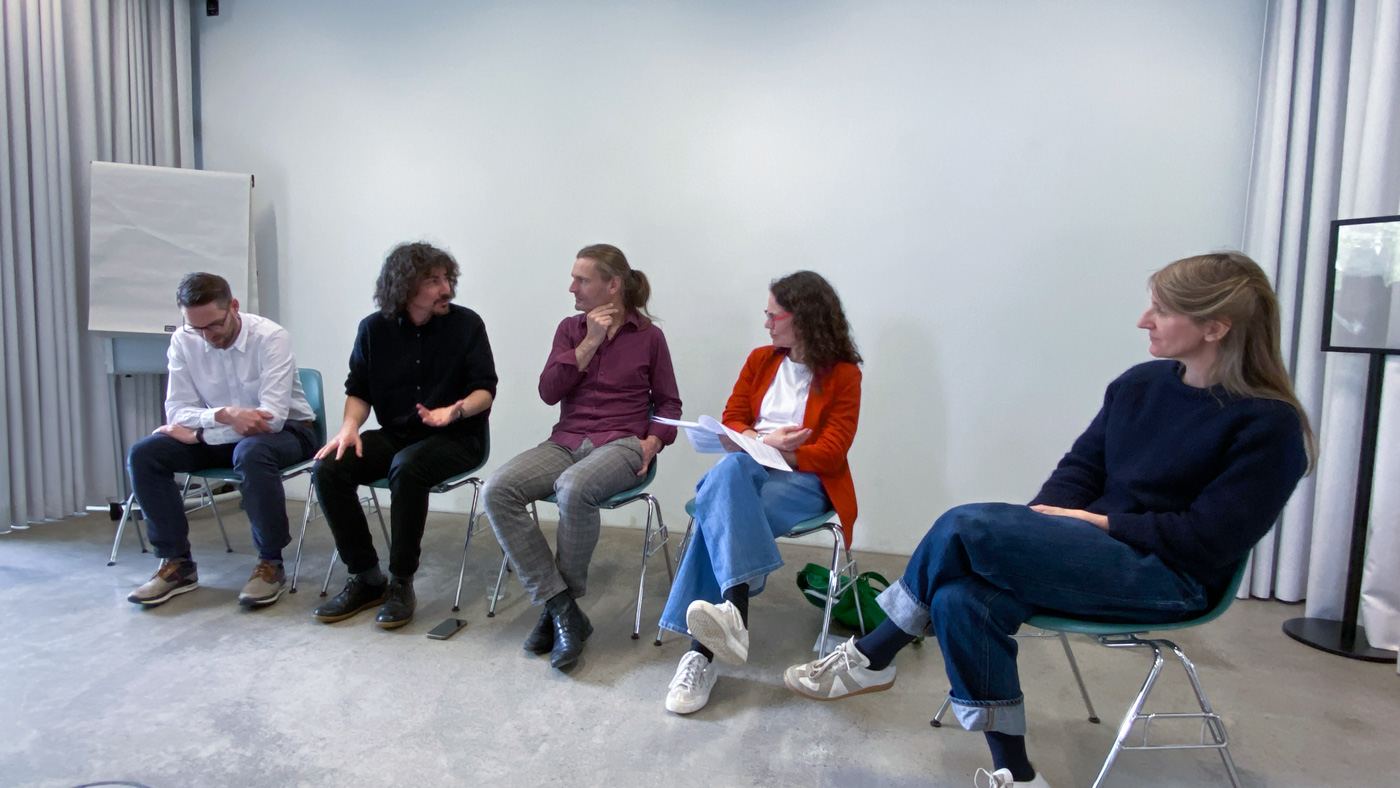Sonic Imagination: When We Grow Old
A speculative auditive environment by Martin Rumori and Ludwig Zeller that places four scenarios for demographic change in Switzerland until the year 2070 on the Freilager-Platz in Basel.
April 19 - May 26, 2024 (extended to June 16)
HEK, Freilager-Platz 9, 4142 Münchenstein
Switzerland will undergo a significant demographic ageing process over the next 50 years. According to projections by the Federal Statistical Office, one in four people will be over 65 by then. Martin Rumori and Ludwig Zeller, researchers at the Institute Digital Communication Environments at HGK Basel, will discuss future scenarios that deal with demographic change and are anchored as an acoustic simulation on the Freilager-Platz in Basel.
Thanks to medical breakthroughs and technical aids, will people in 2070 be mobile and actively involved in shaping Swiss society at a much older age than today? Will they still be part of the working population? How much human labor will still be needed if the use of artificial intelligence and machines is cheaper, and who will pull the strings in such an economy? How will society develop if „the young“ are too few to revolutionize the traditional with new ideas? How has the climate been dealt with?
”When We Grow Old“ was funded by SNSF Agora and builds on the research results of the SNSF Spark research project “Sonic Imagination“, which was carried out from 2020-2021 under the direction of Ludwig Zeller at the Institute Digital Communication Environments at HGK Basel. Equipped with headphones, a head tracker and a smartphone, the audience listens to the researchers discussing these questions in a dialog at the Freilager-Platz in Basel. Thanks to acoustic simulation techniques, which Ludwig Zeller and Martin Rumori explored aesthetically in their research project, the speculative reflections can be experienced in an astonishingly spatial and deceptively real way as an aurally augmented reality.
Café Thématique
A café thématique took place on April 20 in the HEK workshop room with (from left to right) Manuel Buchmann (Demografik), Ludwig Zeller (design and media researcher at HGK Basel), Martin Rumori (sonible), Alexandra Könz (curator and art historian) and Claire Reymond (psychologist and design researcher at HGK Basel). The café thématique was a panel discussion with explicit audience participation, providing a forum for finding out more about and critiquing the scientific, technical and social aspects and background to the Agora funded exhibition project “When We Grow Old” and the Spark project “Sonic Imagination”. 
About the Spark research
The digitization of media offers novel ways to create spatial experiences through sound. The widespread use of headphones with smartphones brings a range of technologies from sound and music processing, academic research and the games industry, such as Ambisonics, binaural technology and head tracking, not only into private but also into public spaces.
In the SNSF Spark research project “Sonic Imagination”, Ludwig Zeller and Martin Rumori investigated the hypothesis that virtual sound sources in media-enhanced listening environments are particularly suitable for triggering and controlling imaginations in people's inner perception. Binaural listening to imaginary scenes at the location of the recording (quasi “in-situ”) served as the central means, as sound as an explicitly non-visual medium can promote the emergence of visual mental imagery. The researchers investigated the extent to which these media-aesthetic and media-technological phenomena can be applied in art and design research.
The SNSF Agora exhibition project “When We Grow Old” demonstrates to a wider audience how this sound-induced imagination functions technically and aesthetically, thus creating a forum for a critical, public discussion of the research results. For the project, impulse response measurements in Ambisonics format were created on the Freilager-Platz in order to transfer speculative scenarios to the site as an auditory mixed reality. Martin Rumori and Ludwig Zeller appear as speculating researchers in the sense of a lecture performance and confront the audience with the affective effect that auditory atmospheres can have on people.
Publications
Ludwig Zeller and Martin Rumori (2021). “Sonic Imagination. Aural Environments as Speculative Artefacts“. In: xCoAx 2021. 9th Conference on Computation, Communication, Aesthetics & X. Edited by Mario Verdicchio, Miguel Carvalhais, Luísa Ribas and André Rangel. 307–324. Download
Ludwig Zeller (2022). “Spekulative Artefakte. Ästhetik und Fiktionalität der kritischen und (meta-)spekulativen Gestaltung“. PhD Dissertation. Academy of Media Arts Cologne. Download







